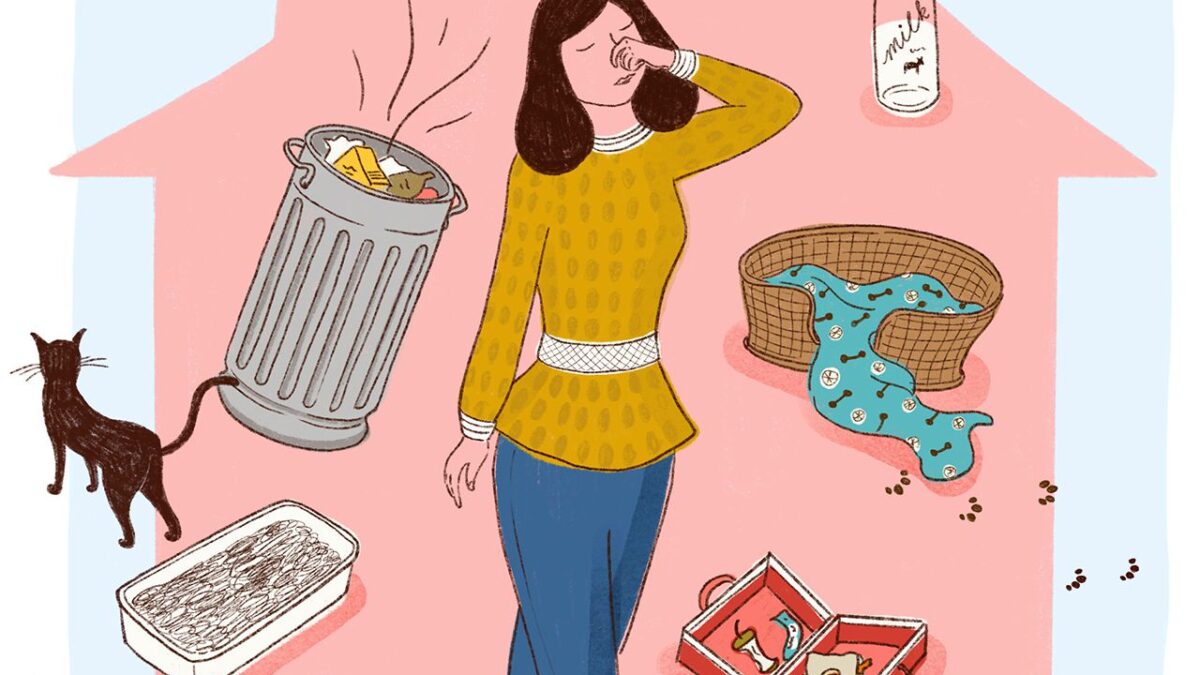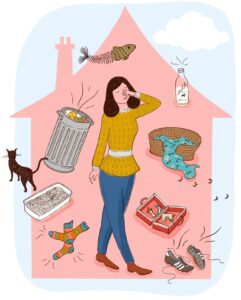Why Does My House Smell Bad? (And How to Fix It)


 Sometimes, a house just… doesn’t smell right. Before you reach for the candles and air fresheners, it’s important to figure out the source of the odor.
Sometimes, a house just… doesn’t smell right. Before you reach for the candles and air fresheners, it’s important to figure out the source of the odor.
Start With the Serious Stuff
If you notice sewage, sulfur, or gas odors, stop reading and call a professional immediately. These smells can signal plumbing issues, broken drains, or dangerous gas leaks. They’re not just unpleasant — they can be hazardous.
Common Causes of Bad House Smells
Not every odor is dangerous, but most are worth investigating. Some culprits are obvious — think overflowing trash, dirty litter boxes, or that bag of popcorn you burned in the microwave last week. Others are more mysterious:
-
Musty or damp smells – Often caused by mold or mildew.
-
Stale odors – Usually from stagnant air, dust buildup, or high humidity.
-
Outside smells – If you live near farms, factories, or busy roads, odors can drift in from outdoors.
Another sneaky offender? Volatile Organic Compounds (VOCs). These are gases released from certain solids or liquids — and many everyday products give them off, even when stored.
Common VOC Sources:
-
Building materials
-
Furniture
-
Printers and copiers
-
Paint and adhesives
-
Cleaning supplies and aerosol sprays
-
Solvents
-
Air fresheners
-
Cosmetics
-
Dry-cleaned clothing
VOCs aren’t just stinky — some, like benzene and formaldehyde, can harm your health and reduce indoor air quality.
10 Ways to Make Your Home Smell Great
1. Let in Fresh Air
When the weather’s nice, open the windows and let fresh air circulate. Use ceiling or floor fans to push that clean air through the house.
2. Vacuum Carpets Regularly
Carpets trap odors from spills, pets, and foot traffic. Vacuum often, shampoo occasionally, and sprinkle baking soda before cleaning for extra odor absorption. If your carpet is more than a decade old, replacing it can dramatically improve your home’s smell.
3. Eliminate Mold at the Source
Air fresheners won’t mask mold. If you see it, clean it. If you smell it but can’t find it, call a mold remediation professional.
4. Wash Curtains and Linens
Curtains, blankets, and bedding absorb odors just like clothing does. Wash them regularly with fragrant detergent or dryer sheets. For dry-clean-only fabrics, take them in for professional cleaning.
5. Freshen the Fridge with Baking Soda
Place an open box of baking soda inside your fridge to absorb lingering food odors. Replace it every three months — or sooner if you store strong-smelling foods like fish.
6. Run Lemons Through the Garbage Disposal
Cut up a whole lemon and run it through your garbage disposal with cold water. The acid disinfects while the citrus oils leave a clean, fresh scent.
7. Use an Air Purifier
An air purifier can trap dust, allergens, and odors from pets, cooking, and garbage. Tabletop models are great for smaller rooms; whole-house systems can cover larger spaces.
8. Make a Simmer Pot
Fill a small pot with water, sliced citrus, and fresh herbs like lavender, mint, or basil. Simmer on low for hours of gentle fragrance. For a cozy fall scent, use apples, cinnamon sticks, and cloves.
9. Add Pleasant Scents
Candles, reed diffusers, and room sprays can instantly improve your home’s atmosphere. Choose scents you enjoy — floral, fruity, or clean — but avoid mixing too many fragrances at once.
10. Cook and Bake
Few things smell better than fresh bread, cookies, or a simmering pot of pasta sauce. Use your kitchen to your aromatic advantage!
The Bottom Line
Before you try to mask a bad smell, find the cause and address it. Once you’ve tackled the source, the above tips can help keep your home smelling fresh, welcoming, and healthy.
Houses that are priced, presented & marketed correctly are selling fast.
Let my 30+ years of Real Estate experience in Las Vegas work for you. 702-378-705
The information contained, and the opinions expressed, in this article are not intended to be construed as investment advice. Very Vintage Vegas does not guarantee or warrant the accuracy or completeness of the information or opinions contained herein. Nothing herein should be construed as investment advice. You should always conduct your own research and due diligence and obtain professional advice before making any investment decision. Very Vintage Vegas, will not be liable for any loss or damage caused by your reliance on the information or opinions contained herein.



